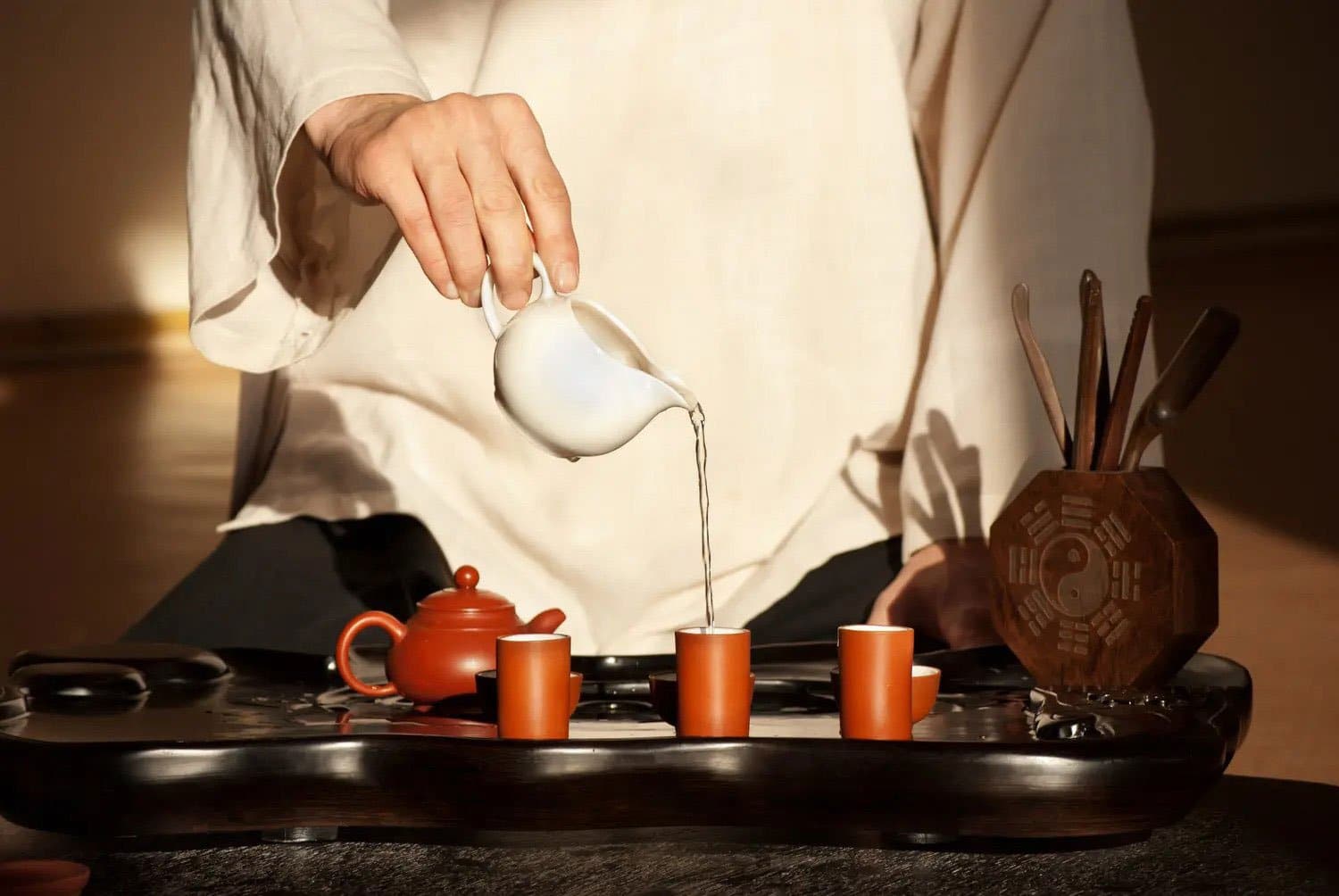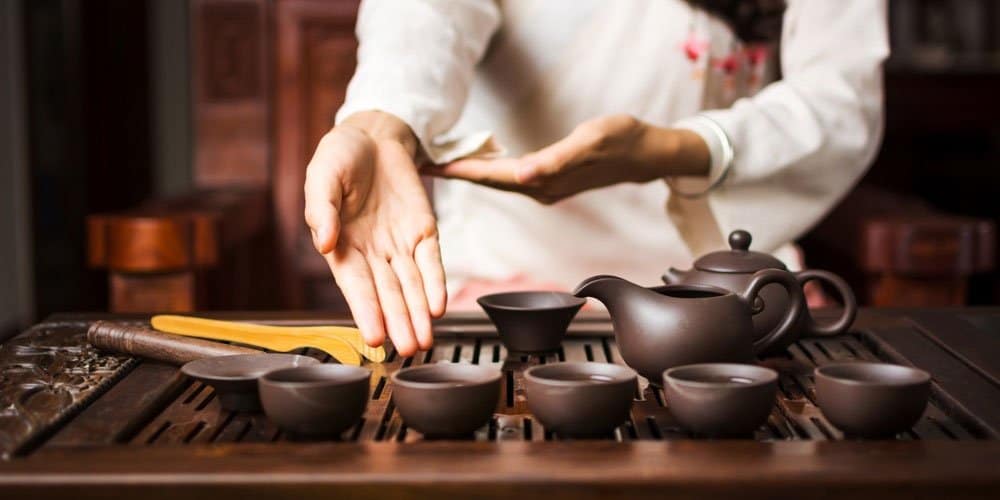
Table of Contents
Want to experience the intricacies of your tea and savour every sip of it?
This post is a guide to help you navigate your way through all the tastes tea has to offer.
Some of you might raise your eyebrows because after all, how hard could it be?
There is a wine and whiskey tasting joke that is applicable: “To taste tea, just get some tea and drink it!”
However, tea, just like wine and whiskey, has so many variants and even within one type of tea, different nuances in taste. Learning how to taste tea properly is an excellent way for you to appreciate all its flavours fully. It is not an intimidating process, and with continued practice, you’ll soon be able to taste tea like a real tea expert.
What Influences Tea Taste?
Tea is very similar to other beverages such as wine and whiskey, particularly, where many different factors combine to create each tea variant’s taste and many flavours.
Terroir
Terroir is a French term used at first for the wine industry but now used for many other drinks, including tea. It describes the region where the tea is grown; Is it mineral-rich? Is it high up in the mountains or near the sea? And so on. These geophysical factors will significantly affect the way your tea will taste.
You can even purchase tea from specific locations. For example, you can purchase Anhui Tea, Taiwan Tea, and more!
Processing Methods
Beyond farming, the way your tea is processed is also a crucial factor in affecting its taste. Who picked your tea? are they long time tea farmers or tea masters? How did they pick the tea? How is it handled, packed, and stored?
Brewing
Finally, the way a great cup of tea will reveal all its potential tastes, aromas, and flavours will depend on the brewing process. The freshness and temperature of the water, how much tea to brew, how long and frequent it is steeped, and even your state of mind all contribute to the taste of your tea.
The Language of Tea Tasting
As mentioned earlier, constant practice will soon make you a tea tasting expert. Tea experts have had more exposure to the different kinds of tea available than the rest of us. They have more references as well as flavour and scent memories to access and most importantly, are equipped with the language to describe them all.
For those just starting, it is hard to dive deep into this giant pool of tea flavours each cup offers and come up with descriptions for any of them quickly.
We need to teach our senses, particularly our sense of smell, taste and sight, to be more discerning, which they naturally are anyway but don’t fully tap into it. It truly is a case of practice in the form of continued tea tastings will make you a perfectly capable expert tea taster.


The Steps to Taste Tea Like a Pro
To start tasting tea like a pro, you will need an assortment of teas you want to taste, all your tea utensils, your nose and taste palate and most importantly, mindfulness.
It would be best if you were free of distraction so you can focus entirely on the tea and how each flavour will emerge so you can describe it as accurately as possible.
Look out for your tea’s colour, aroma, flavour and (thanks to our whiskey brothers), the mouthfeel.
1. Mindfulness
Make sure you are in a quiet room, free of distractions. You are brewing this cup of tea to enjoy it for what it is and not because you need to drink some tea to help you unwind while you read a book, for example. Brewing your tea to taste your tea is an enjoyable activity on its own.
2. Observe your tea leaves
While still dry, check out your tea leaves. Are they big leaves? are they whole or are some already broken? Is this a blended tea because all the leaves are different from one another? Inspect its texture, the crunchier the leaf, the better because softer, soggier leaves mean they are already exposed to some moisture. Finally, take a whiff of the dry tea leaves. The scent should gently waft into your nose on its own. Watch out for pungent, heavy and overbearing smells. Strong smells are usually not a good sign and take notes of what you observed.
3. Start brewing your tea
You can use either the Western or Chinese methods of brewing tea. Take note though that the Chinese Gong Fu style of tea brewing will allow you to extract more of the taste of your tea due to its smaller servings and multiple steeping process.
4. Serve your tea
Using the right cups, teapots, and serving etiquette are all part of the experience. Splurge on some luxurious tea accessories or keep it simple with whatever you have at home. You can go as traditional as you like or as casual as you like.
5. Colour
Once your serving is poured into your teacup, check the colour and take notes of how light or dark it is. You can choose to use white teacups to see better.
6. Smell
Before taking a sip, smell your tea and check if there are any differences or similarities from its aroma when still dry. Again take notes so you can compare in depth later on.
7. Taste!
This is the best part of the whole process.
We recommend you use smaller Gong Fu style teacups so it is more concentrated and you can really appreciate the tea. Take your first sip, don’t gulp. And let the tea swish in, around and over your tongue so you can take note of its texture as well. Swallow slowly and wait for a minute to take a second sip. This will allow your tongue to detect any aftertaste or tail notes that usually come later on.
Use your tea flavour wheel and write down all the head, body and tail notes you can discern from your cup, and keep doing so with every infusion. You might be surprised to notice how many taste notes you have jotted down at the end of the session.
8. Mouthfeel
Mouthfeel is just that – all the different sensations and feelings in your mouth as you keep that tea in there before swallowing. It also describes the weight and texture of the tea. Was it light or heavy? Thick and creamy or thin and watery? For texture, was it smooth or rough? Buttery or like leather? And so on.
Enjoy Tea Your Way
What is important to remember is that tea tasting’s ultimate goal is for you to truly enjoy your tea in a meaningful way and allow you to express how you feel when having a fantastic cup. There are no right or wrong answers and is a subjective experience.




